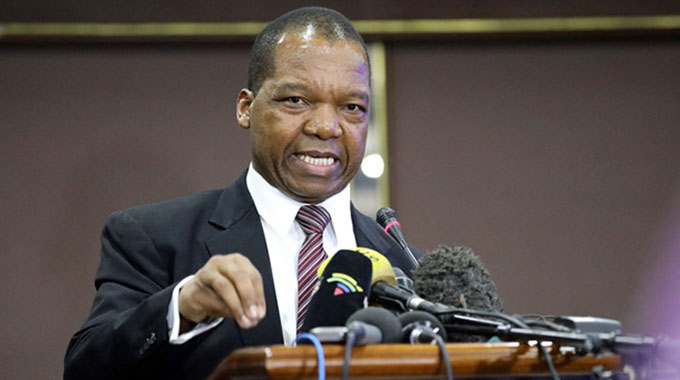Banks may struggle to meet deadline

Tawanda Musarurwa Senior Business Reporter
Zimbabwe’s financial institutions may struggle to meet the December 2020 deadline to fulfil new minimum capital requirements due to depressed economic activity as a result of the coronavirus (Covid-19) outbreak.
Earlier in January, Reserve Bank of Zimbabwe (RBZ) governor Dr John Mangudya, said large indigenous banks and all foreign banks will now need to have minimum capital equivalent of US$30 million, effectively hiking the threshold.
Last year the central bank had set 2020 minimum capital threshold for large indigenous commercial and all foreign banks at $200 million, but kept them at $25 million for small commercial, merchant and development banks, building societies, finance and discount houses.
Commercial banks, merchant banks, development banks, finance and discount houses are now required to have minimum capital equivalent to US$20 million, while deposit taking institutions must have equivalent of US$5 million.
The minimum capital threshold for micro-finance institutions has been set at US$25 000 local currency equivalent.
But analysts at regional-focused GCR Research say the Covid-19 pandemic will eat away at local banks’ capacity to meet the new US$30 minimum requirements.
“The traditional banking model in Zimbabwe is breaking, with banks moving to fixed assets to preserve capital rather than lending or maintaining adequate liquidity. (Banks’) asset quality is expected to deteriorate in 2020, due to erosion of household incomes and some corporate closures,” said the analysts in special report on the impact of Covid-19 on Zimbabwean financial institutions.”
They add that the health pandemic’s impact on the South African economy – which is Zimbabwe’s largest trading partner and where a huge Diasporan community dwells – will adversely affect the local economy in terms of foreign currency generation.
“The cash strapped financial institutions have been facing persistent foreign currency shortages for years. The level of local money supply is too high and needs to be supported by foreign currency reserves.
“In addition to exports, the economy still relies on Diaspora remittances for forex funding, most of which is from South Africa. Severe Covid-19 outbreaks may significantly slow down business in South Africa, thereby, affecting incomes of the employees, especially in non-regulated industries where most Zimbabweans are employed,” said GCR Research.
“This in turn will affect the much-needed foreign currency availability. The Covid-19 imposed import restrictions may curb demand for foreign currency which might stabilise the parallel exchange rate.”
Economists at the Zimbabwe National Chamber of Commerce concur with this line of thought and have called for an extension of the minimum capital deadline.
“There is need to waiver capitalisation of banks from US dollars to Zimbabwe dollars; high capital levels, though important, are not synonymous with stability.
“Waiver of US dollar capitalisation will mean that banks will not be under pressure to get US$30 million required for tier 1 banks.
“There is need to extend the capitalisation deadlines for banks and micro-finance institutions to December 2021, in Zimbabwe dollars not US dollars.
“There is also need to lower statutory reserves to 1 percent, which will release about $2 billion for banks to lend.”
One of the key roles of the RBZ is to ensure that bank against large losses so that deposits are not at risk, with the possibility of further disruption in the financial system being minimised.
In a recent blog titled ‘Maintaining Banking System Safety amid the Covid-19 Crisis’, the International Monetary Fund (IMF) suggested that financial sector regulators should try and “maintain the rules”.
“Don’t change the rules. Doing this in the midst of a crisis will likely cause more confusion,” said the IMF.
“Likewise, be prepared to give banks time to meet rules if they fall short, and hold off on implementing new initiatives — banks should remain focused on maintaining ongoing operations, given the increased difficulties of conducting such operations remotely.”










Comments